Open upstream and downstream of the industrial chain -a tie company in Zhejiang to raise the right to speak of raw materials with factories to increase the profit margin
Author:Xinhuanet Time:2022.06.28
Xinhua News Agency, Hangzhou, June 27th: Opening upstream and downstream of the industrial chain -a tie enterprise in Zhejiang to raise the right to speak of raw materials with factories to increase the profit margin
Xinhua News Agency reporters Yuan Zhenyu, Shangying, Yin Xiao Sheng
On the one hand, a heterogeneous breeding workshop, a batch of silkworms of different growth stages are placed in the breeding plate by the robotic arm. There are biscuits -shaped artificial feed on the bottom of the plate with soybean meal, corn flour, mulberry powder, and composite vitamins. In the production workshop on the other side, snow -white cocoons pour out from the transmission belt like a waterfall.
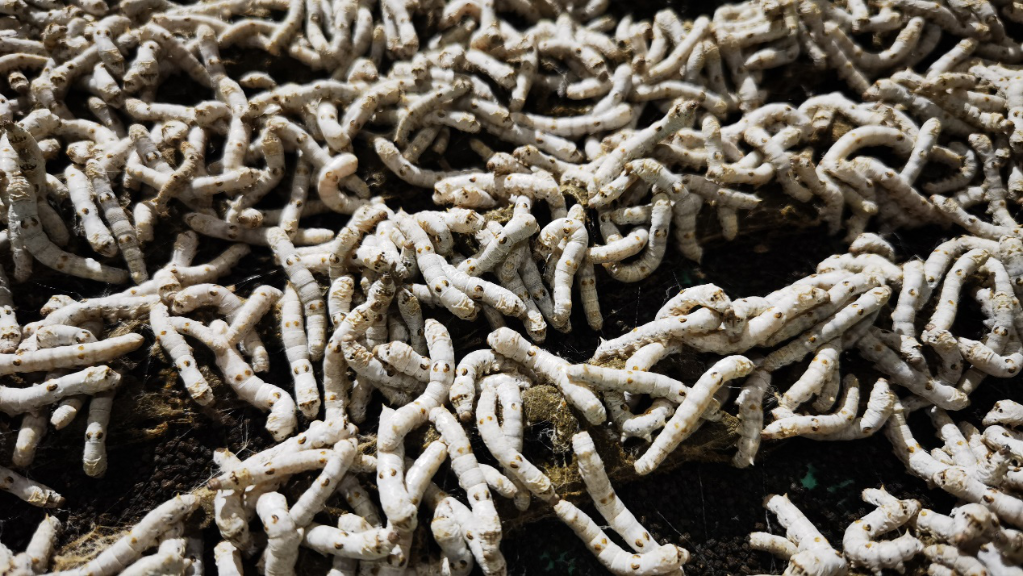
In the Babe Group's silkworm workshop, silkworms are eating special feed. Xinhua News Agency reporter Yin Xiaosheng Photo
Entering Babei Group, located in Lizhou City, Zhejiang Province, the factory -based silkworm project of this traditional tie production company is refreshing. "We have broken through the seasonal restrictions of silkworms and the high dependence of silkworms on mulberry leaves. The silkworms in the workshop can be carried out 24 hours a day and 365 days throughout the year." Jin Yao, chairman of Babe Group.
Get forward to the upper reaches of the industrial chain
In the construction site of the second phase of the Barbabe Group's factory -based silkworm -nourishment project with a total investment of 2.8 billion yuan and a construction area of 440,000 square meters. The modern factory building similar to the huge incubator is up to be put into use. On the basis of the current first phase of the first phase of the 7,000 tons of fresh cocoon, the second phase of the project will realize the annual output of 40,000 tons of fresh cocoons.
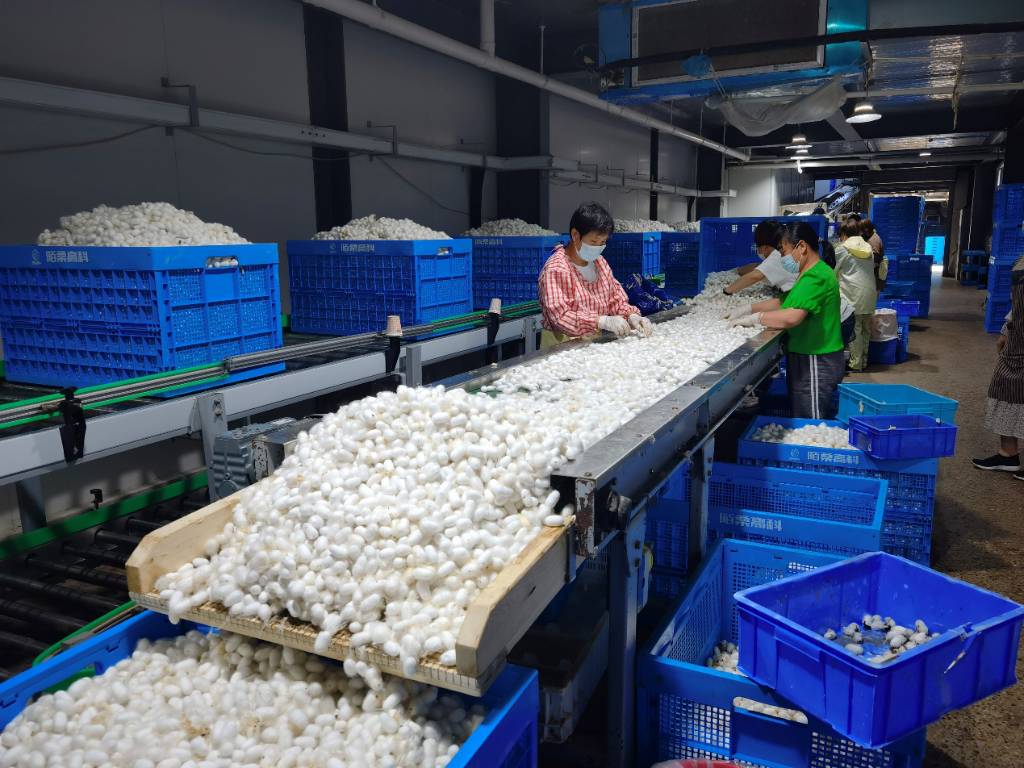
In the production workshop, the employees of Babe Group are picking up silkworm cocoons. Xinhua News Agency reporter Yin Xiaosheng Photo
"The profit of the tie is too thin, and the price of raw materials has greatly influenced the price fluctuations. Raising silkworms have been forced out. I did not expect that this road has gone for so many years." Recalling that in the past, Jin Yao couldn't help sighing.
Puzhou is the "hometown of Chinese tie", with the highest tie production of 90%and 70%of the world. However, the words of Qian Feng, the secretary -general of the Lizhou Tie Industry Association, were described that around 2010, the output of the Lizhou tie reached the "ceiling", but the profit was always on the "floor". Silk prices have continued to rise on companies.
How to master more words and pricing rights in the industrial chain is a problem facing the leading company Babe Group in Lizhou City.
In 2012, through a chance, Jin Yao learned that he could use artificial feed to raise silkworms, but at the time in the trial stage, he had not yet achieved factory production. He saw the hope of the transformation and upgrading of the enterprise, and made up his mind to introduce a professional R & D team, carry out strategic cooperation with research institutions and research institutions, and has since embarked on a long way to raise silkworm roads.
In 2019, Babe Group's factory -based silkworm -breeding project was successfully mass -produced, and the quality of the silk reached 5A of the national standards, which realized a new model of low -cost factory for large -scale, high -density, and continuous production throughout the year. "High -density and all -age artificial feed factory chemical silkworm nourishing technology" was selected as the "disruptive innovation list" selected by the China Association for Science and Technology at the National Volkswagen Entrepreneurship Innovation Week.
The silkworms here do not eat mulberry leaves to eat "biscuits"
According to archeological records, more than 5,000 years ago, the Chinese ancestors had begun to cultivate silk. The seasonality of the growth of silkworms, high dependence on mulberry leaves, and high density requirements for artificially become a distinctive characteristic of the silkworm industry.
"We raised silkworms, from the selection of silkworm species, feed formulas, breeding equipment, disease prevention systems, and environmental control all broke through the original traditional model, and the success of each core link has experienced hundreds of thousands of failures." He Ruimin, the person in charge of the factory of Babei Group's factory, said.
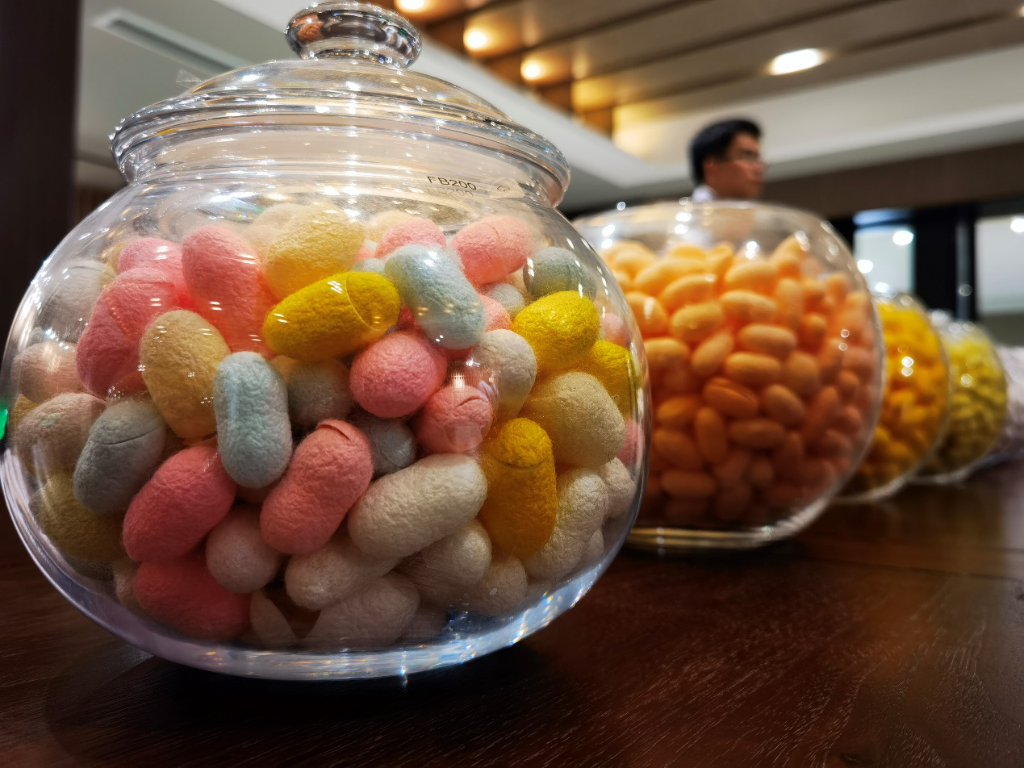
Colored silkworm cocoons in Babe Group's exhibition hall. Xinhua News Agency reporter Yin Xiaosheng Photo
For example, the control of silkworms' intake of mulberry leaves is actually selected for breeds; those biscuits -like feed not only is deployed according to the nutritional needs of different growth stages, but also needs to be minimized. The habit of silkworms in the same age has been designed. "The last one for the feding of these silkworms was tasted with my mouth." He Ruimin smiled.
Factory cultivation has greatly improved the efficiency of silkworm nourishment. Taking 10,000 tons of cocoon annual cocoons as an example, traditional farming requires about 100,000 farmers to participate, while factory breeding only requires less than 300 production line workers to complete, and the quality of silk is more stable, color, strength, antibacterial and other performance performance You can also change and improve according to demand.
At present, Babe Group has obtained 123 patents in the field of factories, including 23 invention patents, practical new models and appearance design patents, and is applying for 65 invention patents.
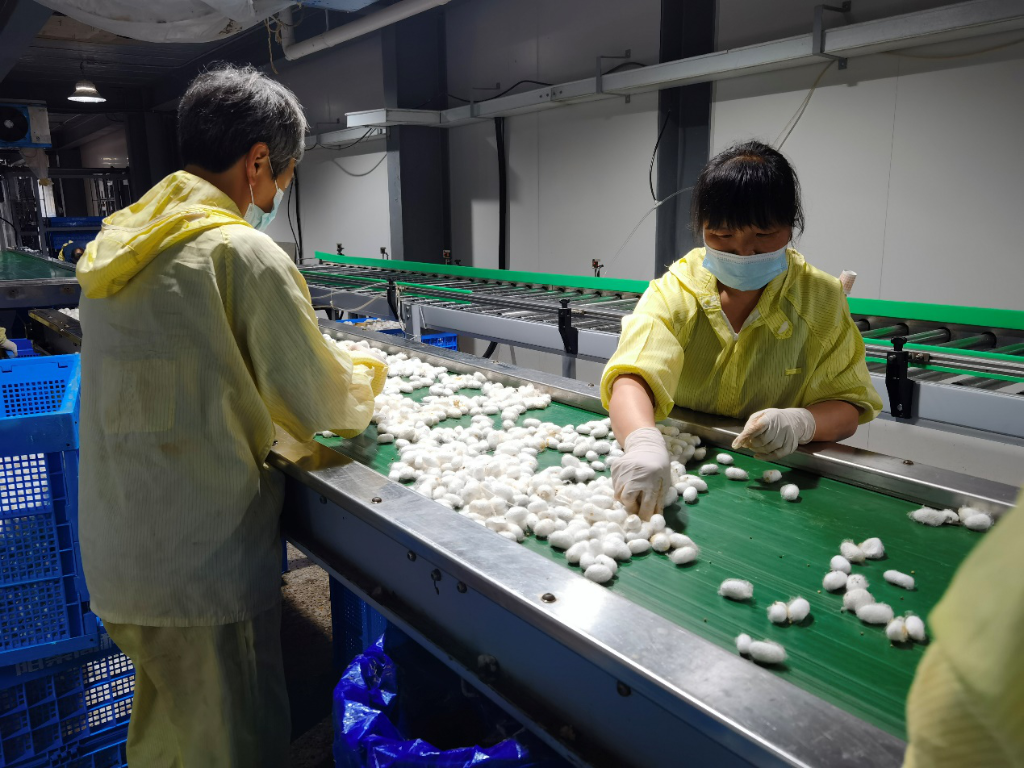
In the production workshop, the employees of Babe Group are picking up silkworm cocoons. Xinhua News Agency reporter Yin Xiaosheng Photo
Meng Zhiqi, the former vice president of Zhejiang Academy of Agricultural Sciences and an expert in silk mulberry research, said that Babe Group has created a new technical system for high -efficiency, low -cost, and integrated modern cocoon wires with the scientific and technological concept of modern agriculture. The new model of modernized silkworms that are intensive, large -scale, perennial, factorized, and replicated.
When silk is not only silk
In the early morning, a busy scene in the factory of Babe Group's silkworm project was busy, and a bag of uniform and plump cocoon was pulled away by trucks and entered the market. He Ruimin told reporters: "Every day there are cars, and the 20 -ton fresh cocoon of our Nissan is pulled away directly, and the supply is in short supply."
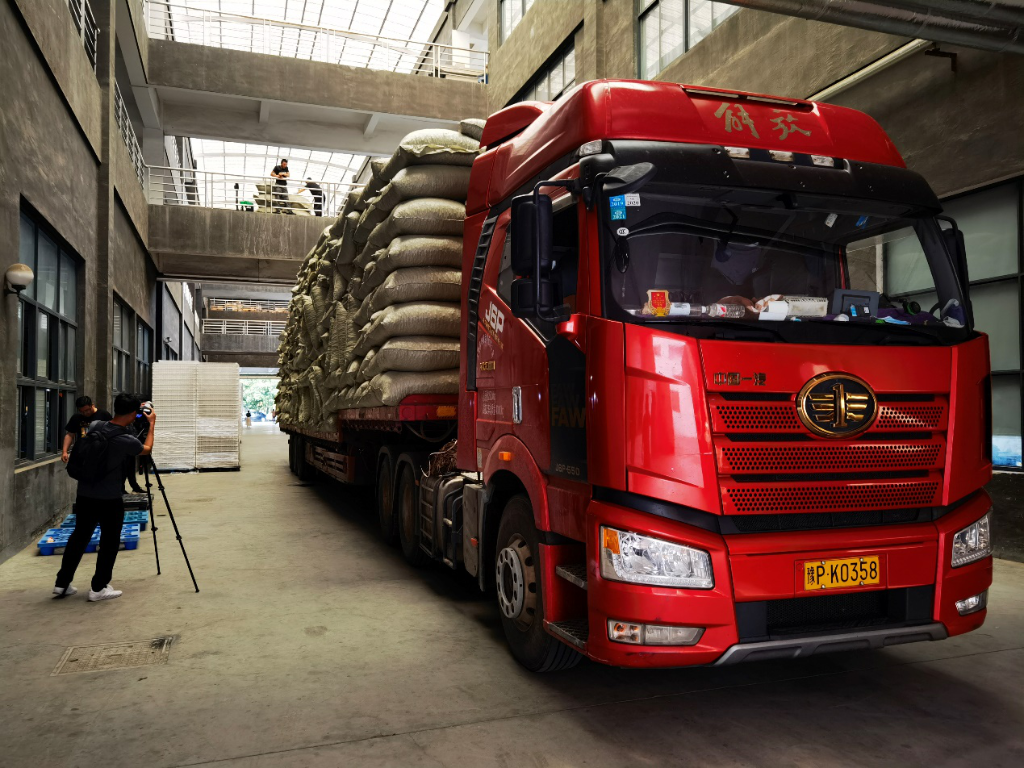
In the Babe Group, customers come to acquire cocoon trucks. Xinhua News Agency reporter Yin Xiaosheng Photo
Jin Yao said that in recent years, Babe Group has invested more than 10%of sales revenue. Factory nourishment may become the largest business sector of the group in the future. Babe will also rely on this, and is committed to opening up and downstream of the industrial chain, and strive to build a tens of billions of "silk heights". In addition to the production of high -quality silk, Babe Group is working with scientific research institutes such as the Zhejiang Academy of Agricultural Sciences to carry out the technological research and industrial application of the entire industrial chain around the fields of coating and high -value utilization of silk protein textiles. Next, in addition to the textile industry, silk will be used in multiple fields such as biomedicine, high -end equipment, and new materials.
In 2021, Jin Yao was rated as the "Outstanding Contributor of Zhejiang Agricultural Science and Technology" and became the only winner from the company that year. He said that Babe Group actively seemed to change. Although the traditional production tie has entered the "micro -profit era", the enterprise actively advances to the upper reaches of the industrial chain. At present, the comprehensive profit margin of the factory -based silkworm project is more than 30%. The output value can reach 1.8 billion yuan, which greatly enhances the Group's competitiveness in the industry, and provides more imagination for traditional agricultural innovation and development.
[Editor in charge: Liu Xiaodong]
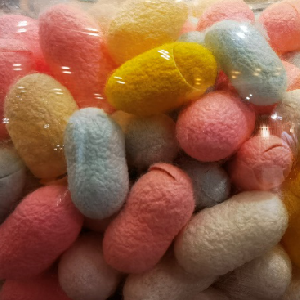
![]()
- END -
The Ministry of Finance announced the third quarter of 2022 government bond issuance plan
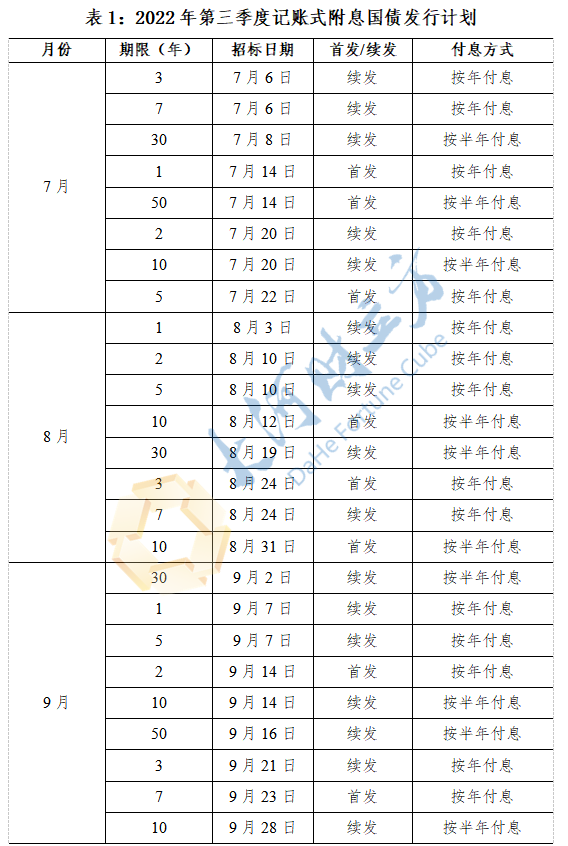
[Dahecai Cube News] On July 1, the Ministry of Finance announced the third quarter...
The "chain owner" is sitting, the "circle of friends" continues to expand

Right now, walk into Weiqiao (Weihai) Aluminum Refinery Industrial Park. The main ...